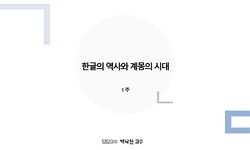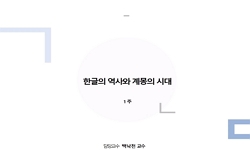This paper aims to reinterpret the theory of Primordial Buddha (本來佛陀) through the Buddhist concepts of Haeo (解悟, intellectual enlightenment) and Jeungo (證悟, ultimate enlightenment) within the framework of the practice-realization theor...
http://chineseinput.net/에서 pinyin(병음)방식으로 중국어를 변환할 수 있습니다.
변환된 중국어를 복사하여 사용하시면 됩니다.
- 中文 을 입력하시려면 zhongwen을 입력하시고 space를누르시면됩니다.
- 北京 을 입력하시려면 beijing을 입력하시고 space를 누르시면 됩니다.

해오(解悟)와 증오(證悟)를 통해 본 깨달음과 실천의 통합: 본래부처론의 현대적 재구성 = Integrating Enlightenment and Social Practice through Haeo (解悟) and Jeungo (證悟): A Contemporary Reinterpretation of the Primordial Buddha Theory
한글로보기https://www.riss.kr/link?id=A109613457
-
저자
이명호 (인드라망생명공동체 인드라망연구소)
- 발행기관
- 학술지명
- 권호사항
-
발행연도
2025
-
작성언어
Korean
-
주제어
Enlightenment ; Haeo (解悟) ; Jeungo (證悟) ; Practice-Realization Theory ; Primordial Buddha (本來佛陀) ; 깨달음 ; 해오 ; 증오 ; 수증론 ; 본래붓다
-
등재정보
KCI등재
-
자료형태
학술저널
-
수록면
115-148(34쪽)
- 제공처
-
0
상세조회 -
0
다운로드
부가정보
다국어 초록 (Multilingual Abstract)
This paper aims to reinterpret the theory of Primordial Buddha (本來佛陀) through the Buddhist concepts of Haeo (解悟, intellectual enlightenment) and Jeungo (證悟, ultimate enlightenment) within the framework of the practice-realization theory, exploring the potential for social practice based on this reinterpretation. In the Korean Buddhist tradition, Primordial Buddha often emphasizes enlightenment as an ultimate goal achieved through practice, which can inadvertently delay realization to a future state, thereby limiting present-day practical application. This study analyzes discussions on Haeo and Jeungo, explaining how Haeo enables an intellectual understanding of Buddhist awakening, while Jeungo represents the process of integrating this awakening into one’s life through gradual cultivation (漸修). Specifically, this paper highlights the need to recognize that all beings inherently possess Buddhahood and that awakening and practice should commence in the immediate moment, proposing the possibility that Buddhist teachings can have tangible impacts within society. Through the concept of Jeungo, this study further explores the social responsibility of Korean Buddhism, investigating concrete ways to expand compassion and empathy in communal practice. These discussions underscore the need for Buddhist practices that integrate enlightenment and cultivation into daily life to address the complex crises facing contemporary society. Additionally, this reinterpretation of the theory of Primordial Buddha through Haeo and Jeungo demonstrates that Buddhist enlightenment can extend beyond internal fulfillment to contribute meaningfully to communities. In this light, the study seeks to explore how Korean Buddhism may engage in a new Mahayana-oriented mission, addressing today’s social and ecological issues through practical application.
국문 초록 (Abstract)
이 논문은 불교의 해오(解悟)와 증오(證悟)를 통해 본래부처론을 재해석하고, 이를 바탕으로 사회적 실천 가능성을 탐색하는 것을 목적으로 한다. 한국불교 전통에서 본래부처론은 수행을 ...
이 논문은 불교의 해오(解悟)와 증오(證悟)를 통해 본래부처론을 재해석하고, 이를 바탕으로 사회적 실천 가능성을 탐색하는 것을 목적으로 한다. 한국불교 전통에서 본래부처론은 수행을 통한 깨달음을 궁극적 목표로 설정함으로써 깨달음을 미래로 미루는 경향이 있으며, 이는 현재적 실천을 제한하는 요인으로 작용한다. 이 연구는 해오와 증오에 관한 논의를 분석하여, 해오는 불교적 깨달음에 대한 지적 이해를 가능하게 하고 증오는 점수(漸修)를 통해 그 깨달음을 삶 속에서 실천으로 통합하는 과정으로 설명한다. 또한, 해오를 통해 모든 중생이 본래부처임을 인식하고 지금 이 순간부터 깨달음과 실천을 시작할 필요성을 제시함으로써 불교의 가르침이 사회 속에서 실질적인 영향을 미칠 수 있다고 제안한다. 증오의 개념을 통해 한국불교의 사회적 책임을 고찰하며, 불교가 지역사회(공동체) 내에서 연대와 자비를 실천적으로 확장할 방안을 탐구한다. 이러한 논의는 깨달음과 수행을 일상 속에서 통합하여, 현대사회가 직면한 복합위기에 대응하기 위한 불교적 실천을 강조하는 의의가 있다. 나아가, 해오와 증오를 통한 본래부처론의 재해석은 깨달음이 단지 내면적 성취에 머무르지 않고, 공동체에 대한 실질적 참여와 책임의 확장으로 나아갈 수 있음을 보여준다. 이처럼 이 연구는 한국불교가 새로운 대승적 과제를 실천적으로 수행하고, 사회적·생태적 문제에 대응할 가능성을 모색한다.
동일학술지(권/호) 다른 논문
-
탈교회 신자(가나안 성도)와 중층신앙: 탈종교 시대 한국 개신교의 현상과 미래
- 한국종교사회학회
- 이정철
- 2025
- KCI등재
-
- 한국종교사회학회
- 최영균
- 2025
- KCI등재
-
종교가 중장년층의 주관적 건강상태에 미치는 영향: 만성질환 유무를 중심으로
- 한국종교사회학회
- 조광덕
- 2025
- KCI등재
-
- 한국종교사회학회
- 김도희
- 2025
- KCI등재




 KCI
KCI DBpia
DBpia






